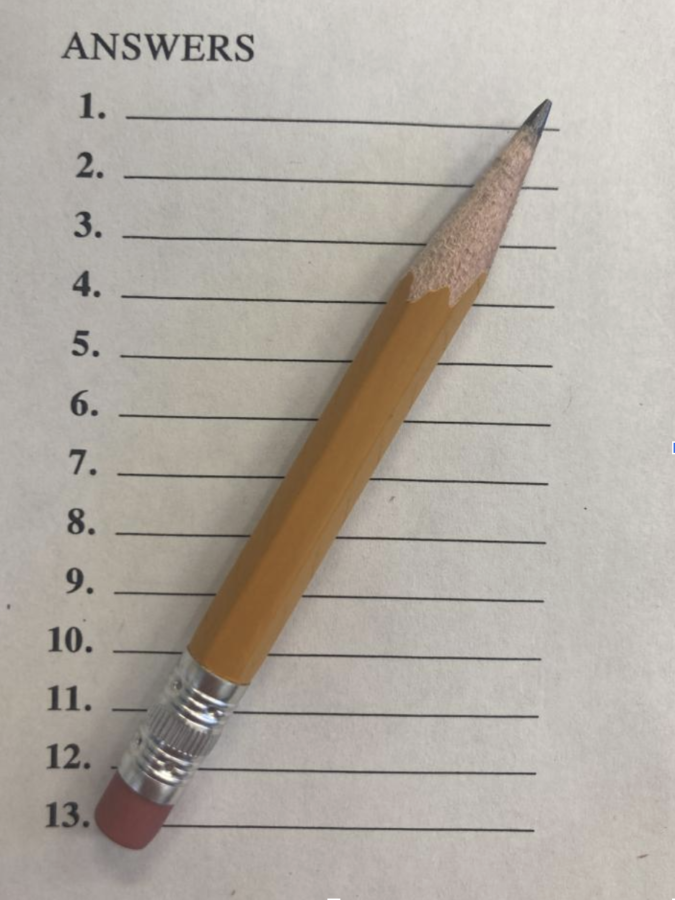10 Test-Taking Tips for Final Exams: Optimize Your Academic Success
As the academic year comes to a close, students find themselves faced with the formidable beast that is final exams.
Although studying for your test is a critical part of the exam-taking process, it is still important to know how to maximize the chances of success the day of the test, whether that be prepping for the test, taking the test, or reviewing your answers.
Several sources across the internet, including Education Corner, Central Methodist University, and Harvard have recommended ways to ensure test-taking success. The following are ten test-taking tips from these sources:
Make sure to prepare yourself the night before. Review your test materials before you go to sleep. In 2020, researchers from Loughborough University conducted a study where they found that learning or reviewing bed before bed improved students’ ability to recall information later. However, it is still important to get a good night’s rest so that your brain can function at maximum efficiency.
Eating a well made breakfast in the morning is crucial. On the topic of maximum brain efficiency, it’s important to eat a good breakfast before taking exams. A grumbling stomach is incredibly distracting. It’s recommended to eat a blend of carbs and healthy proteins, as they will keep you feeling full, but not sluggish. Reccomended foods include eggs, oatmeals, and nuts.
Don’t keep anything unanswered in your mind before the test, so ask your teachers questions before starting the test. Many teachers do not allow students to ask questions during the test. To avoid this, make sure you review all of the topics on the test beforehand, and ask your teacher before taking the exam. Although this is helpful, it does not mean you should not atleast try to ask questions during the test if you find yourself stuck.
Take the time you need, but make sure you finish all the questions. Rushing through the test will do you no good. Don’t worry about anyone else in the room, or who’s finishing first, simply focus on your own test and completing it. Make sure to manage your time properly. At Highlands, the average test taking period is two hours, plus the allotted 30-45 minutes of study time. About a week before the exam, most teachers will give you a summary of what types of questions and their quantites will be on the test beforehand. These materials are incredibly useful for organizing your time. By using these materials to know how long you have for your exam, you can divide your time evenly and make sure you aren’t rushing at the end of the test.
Short answers and essays should be the first thing to get out of the way. To make sure you have enough time to answer them thoroughly, start with essay questions, short answer questions, or the like. When you begin your test, the information is fresh in your mind, and this will allow you to answer these questions more coherently. In addition to this, if you find yourself short on time, you’re more likely to get multiple choice questions correct while in a rush than an essay or short answer question.
Pay attention to all the details of test. Make sure to read every passage, question, and answer option thoroughly. Sometimes multiple answers are correct, but you are tasked with choosing the best one out of all the options. Also, watch out for words like “always,” “never,” and “will,” especially in True or False questions. Words like these are purposefully placed to mislead you. Unless the question is 100% true 100% of the time, the answer is false.
Think of the answer to a multiple choice question before looking at the answers. By answering questions in your head before looking at the options, you can avoid getting stuck between two seemingly correct answers. Most of the time, it is best to go with your first choice, and incorrect answers, known as “distractors,” are purposefully put there to throw you off. By answering questions first, then looking at the options, you can find the one that is closest to your original answer without doubting yourself because of other answer options.
Write down or mark any questions that you are stuck on so you can come back to them later. While taking your exam, time is money. If you followed tip 4 by dividing your time to figure out the optimal amount of time to spend on each question, you can estimate if you’re taking too much time on a question. Instead of sitting there perplexed, make your best guess, circle or flag the question, and move on through the rest of the test. Then, if you have extra time at the end of the test, go back and re-read the question in hopes of getting a better understanding.
Check, check, and check again. If you have extra time once you’ve finished your test, look over the entire thing. First, check for completeness. Make sure you haven’t skipped any questions. Even if you don’t know the answer, a guess on a multiple choice question gives you a 25% chance of success. Then, check any questions you’ve marked because you’re unsure about. Making sure to check all your answers can improve your confidence and make you feel better about submitting your test.
Relax once you have finished the test. Once you’re finished and you’ve turned in your test, take a deep breath and take a moment to be proud of yourself. Don’t meddle over what you think you got wrong, there’s nothing you can do about it now. You’re done! Give yourself a pat on the back.
Finals can be an incredibly stressful time for students, but with effective test-taking strategies and a focused approach, anyone can conquer these academic challenges and achieve outstanding results.
Your donation will support the student journalists of Highlands High School. Your contribution will allow us to cover our annual website hosting costs.



